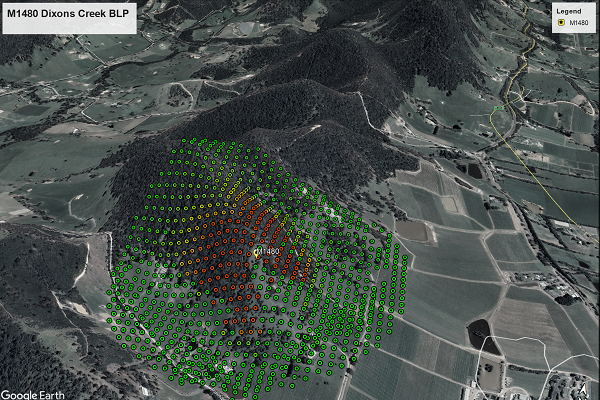CSIRO, Optus release research mitigating telecommunications bushfire risks
Australia’s national science agency, CSIRO, and Optus have released findings of a joint nationwide project to improve bushfire resilience of critical telecommunications.
The research analysed where there is risk of damage to the network and where upgrades could reduce vulnerability to future bushfire events.
ADVERTISEMENT
Since mid-2020, CSIRO and Optus have collaborated on a study of the potential impacts of embers, radiation and flame on and around Optus’ sites with telecommunications equipment. These learnings have been used to assess which sites were most at risk, and the priority site design changes.
Information on topography, fuel load, vegetation type and local bushfire weather severity was used to develop maps which then inform resiliency decisions for this critical infrastructure.
Optus is implementing the recommended mitigations at two of its sites in Victoria, Seville East and Dixons Creek, as reference examples for a larger, longer-term resiliency program and also to act as demonstration sites to help other infrastructure owners understand the learnings.
“Optus continuously aims to improve our network’s resilience as we know communities rely heavily on our services, especially during natural disasters and extreme weather events,” Optus managing director, network Lambo Kanagaratnam says.
“Our collaboration with CSIRO has provided us with the analysis to allow us to target the best ways to protect the network where it could be most vulnerable.”
These bushfire hazard and planning maps are early examples of the types of products being developed by CSIRO’s National Bushfire Intelligence Capabilities (NBIC) project which is seeking to develop relevant bushfire hazard mapping products for a wide range of infrastructure types ranging from residential housing to critical infrastructure.
In addition to using the findings to identify and invest in the most impactful upgrades, Optus has developed in-house training and site assessment tools to increase employees’ awareness of the threat to landscape and improve response preparedness. It has started training its contractors to improve future design and builds, or to call out existing site concerns.
CSIRO has a 70-year history of conducting bushfire research to help Australia respond to a changing and variable climate and build the resilience of our nation.
“CSIRO has provided Optus with science and technology-based solutions that address a major threat facing all industries which rely on critical infrastructure: bushfires,” CSIRO research leader for bushfire adaptation Justin Leonard says.
“The research can inform resiliency decisions across a number of industries, including telecommunications, energy and emergency services.”
Lambo says that Optus believes resiliency learnings and improvements was an area where organisations must work together, exchange findings and support each other for the greater benefit of all Australian communities.
“We’ll be working with our industry association, Communications Alliance, to arrange for Optus to share with other companies and organisations what we’ve learned through our work with CSIRO,” he says.
“A nationally consistent and authoritative bushfire hazard and risk information approach amongst telecommunication infrastructure parties would help ensure services are available at the times people need them the most.”
-
ADVERTISEMENT
-
ADVERTISEMENT


